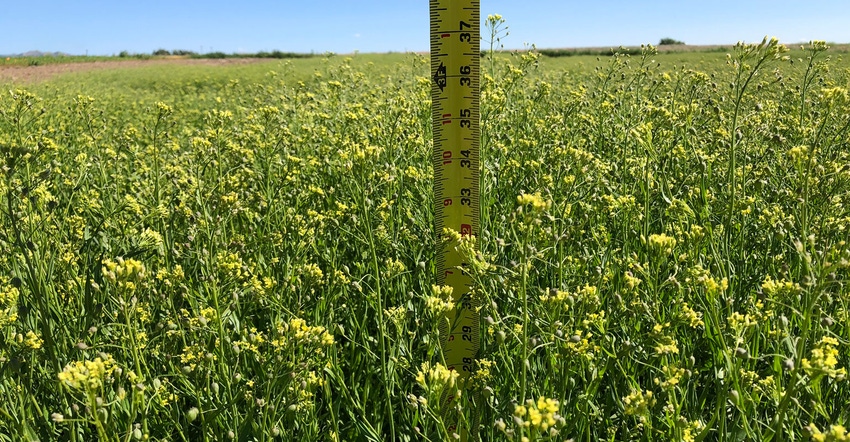September 3, 2021

The ag startup revolution is entering a new phase, as innovators turn from lab to field and come closer to marketing commercial crops. Yield10 Bioscience announced this summer it had completed planting both test fields and seed scale-up fields for its innovative camelina lines. But it’s already got an arrangement for 2022 to ramp up seed production.
Related: Crop tech research could bring new income to ag
“This all reflects that the company is transitioning into a commercial mode and a commercial development mode,” says Oliver Peoples, CEO of Yield10. “We have to start expanding the seed capabilities and expanding the geographies where we were testing.”
Peoples jokes that “farmers are a fussy lot,” looking for varieties that will perform in every geography. That also shows that demand for a new crop and a potential new income source is expanding.
And the seed work is expanding in the United States. The company is already at work in Canada, and work continues in the Northwest.
The process from moving essentially from lab to commercial scale takes time in the crop production world. “You go from having enough seed to plant test plots. That’s nice, but suddenly you’re going to have to plant on acres. And then from acres, it’s hundreds of thousands of acres,” he says.
Peoples says this year’s plantings are part of that ramp-up, and 2022 will bring more commercial seed production. Yet he notes the company is still in the pre-commercial production phase. For farmers, that means limited availability of seed in 2022, yet more opportunities ahead.
But there’s a twofold mission at Yield10 — ramping up seed production and piloting processing for the special traits the company offers.
Oil and plastic
The camelina lines for Yield10 in-field tests and scale-up for 2021 include the following:
Elite camelina germplasm. The company is evaluating more than 20 base germplasm lines, including wild-type, double-haploid, herbicide-tolerant and disease-resistant varieties at more than 10 sites in the U.S., Canada and Argentina. And the company is conducting a multi-acre scale-up of a doubled-haploid camelina line and a disease-resistant line in the U.S. under a collaboration with a seed company.
Camelina, CRISPR E3902. This genome-edited trait has shown consistent increases in oil content in the field over two previous growing seasons. The scale-up is being conducted in the U.S.
Camelina, C3014 and C3015 (PHA). PHA is a bioplastic, and these PHA camelina lines are designed to produce the plastic as a third seed product in camelina. 2020 field tests achieved a proof-of-concept milestone for a plant-based route to PHA. The scale-up is in the U.S. and Canada.
Camelina, novel yield traits. The company is testing added novel performance traits generated using Yield10’s GRAIN (Gene Ranking Artificial Intelligence Network) in field tests.
Camelina could be a new kind of cover crop for farms across key geographic regions, which could expand as more lines are developed. Yet as a cover crop, it may provide an added revenue stream before spring planting with either the oil or PHA bioplastic.
“We’re seeing a boom in soybeans due to biodiesel oil demand,” Peoples says. “We think we will have a role there. We’re not betting the company on biodiesel, but there is excitement here.”
Yield10 is aiming to be opportunistic as it works to develop oil camelina and PHA. Processor relationships may come in to play and, if locked in, create more options. Ramping up seed production and commercial acres will be key to that success. In agriculture, new ideas can take time to grow as companies work out the chicken-and-egg question of supply and demand.
But it appears Yield10 is moving from “startup” to commercial player in agriculture. You can learn more at yield10bio.com.
About the Author(s)
You May Also Like






